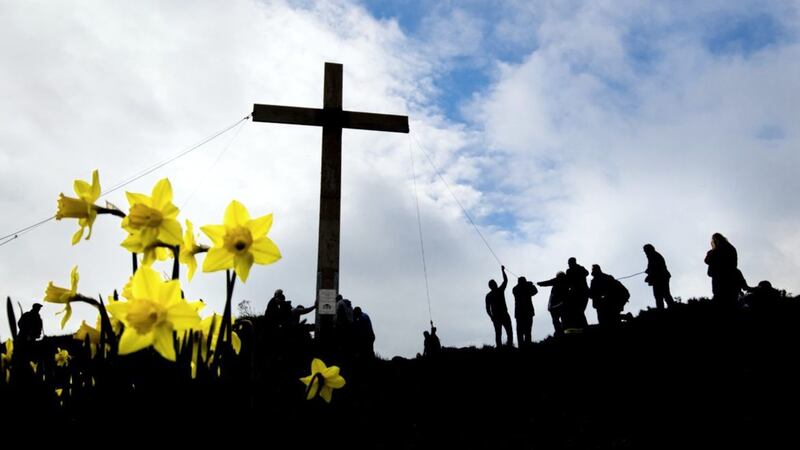THE raising of Lazarus from the dead is one of the best-known stories recorded in St John's Gospel.
And it is also a story we probably like to recall, because, somewhat like ghost stories, it appeals to our desire to be in touch with the world beyond death.
In particular, it speaks to our longing to be reunited with loved ones we have lost through death, and indeed to our own desire to overcome death, and enjoy eternal life.
But whether these are the most important reasons why St John included this story in his Gospel, is another matter.
John may well have included this miracle in his Gospel because of the way it can help us in fact to grasp what eternal life does not mean.
And thus, it may then enable us to imagine more accurately what eternal life might positively consist in.
In raising Lazarus from the dead, in bringing him back to the living from among the dead, Jesus, we note, did not by the same token grant Lazarus eternal, deathless life.
Lazarus, presumably, still had to die again. So, eternal life, whatever it is, cannot be the same thing as an earthly life that never ends; it can't simply be identified with an earthly life that is prolonged indefinitely, or even with the resuscitation of a human corpse, as in the case of Lazarus.
Resurrection is not resuscitation. Resurrection is, rather, participation in eternal life, that is to say, in the very life of God.
It is, however, almost impossible for us to imagine concretely what God's eternal life is like for the simple reason that we were born and live and will at some future point die in time, whereas God lives, we believe, in eternity.
Yet what is remarkable about our Christian faith is our belief that in Jesus Christ God's eternal life has come close to us, and through the sacraments of the Church still comes close to us, in this life that we live on earth.
We don't therefore have to wait for the moment of death, when we might imagine that we enter into eternity, for God's eternal life to become real for us.
And that's why, in his own lifetime on earth, Jesus could say: "I am the resurrection and the life," and why, one assumes, the German exegete Rudolf Bultmann (1884-1976) could write, in relation to the raising of Lazarus, that "the Revealer is the Resurrection and the Life, in whose presence earthly death is void".
Perhaps in our understandable eagerness to concentrate on Jesus' resurrection from the dead, which we believe prefigures the resurrection of his followers, we neglect to some extent another equally important teaching of our faith, which is that Jesus pre-exists the creation of the world.
Eternity, eternal life, the life of God, in which Jesus shares and has always shared and will always share, is not only, in other words, the destiny towards which we hope we are moving, but it is equally the origin from which the world, and we ourselves, have emerged.
But living as we do in time, we cannot but think in terms of beginning and end, birth and death.
However, for the eternal God, the beginning and the end are inseparable: God is the Alpha and the Omega of all life.
And as surely as God began his creation, we believe he can also bring it to its final goal, because it's the same God who is involved in both the beginning and end of our existence.
What God starts, he can finish. So, the eternal reality of God is something we don't have to wait to experience after death.
It surrounds us from start to finish and beyond. "Taste and see that the Lord is good," wrote the Psalmist. He didn't say we had to wait until after death to do so.
Eternal life can then, as Jesus teaches, already begin for us here on earth to the extent that God's ways become our ways.
And if this happens, we may also discover that God's ways are even more mysterious and unfathomable than the mystery of birth or death itself, because God lies beyond both.
The mystery of faith in God that sustains us throughout our life on earth can help us face up to and absorb even the reality of death because God is beyond death, and finally therefore, we believe, can overcome death itself.
But God will overcome death, in the perspective of Christian faith, not in order to make any kind of triumphalistic point and, for example, prove 'atheists' wrong.
Rather, much more positively, God will overcome death in order to let His creation enjoy eternally the divine glory incarnate in Jesus Christ.
:: Martin Henry, former lecturer in theology at St Patrick's College, Maynooth, is a priest of the diocese of Down and Connor








